Spartacus Suite
-
Ships in 2 to 3 weeks
Details
Description
SKU: BT.BMP4051225
Composed by Aram Il'yich Khachaturian. Arranged by Georges Moreau. Symphonic Series. Set (Score & Parts). Composed 2004. Beriato Music #BMP4051225. Published by Beriato Music (BT.BMP4051225).Aram Iljitsj Khatchaturian, an Armenian by nationality, was born 1903 in Tiflis, into the family of a book-binder. He began his musical education in Moscow in 1922 at the Gnessin Music School where his composition master was Mikhail Gnessin, and completed it at the Moscow Conservatoire where he was a pupil of Nikolai Miaskovsky, the famous Sovjet composer and pedagogue. Khatchaturian is the author of two symphonies, three concertos (for piano, for violin and for cello), the music for three ballets (Happiness, Gayane, Spartacus), and many chamber instrumental and vocal compositions. His latest work � the ballet Spartacus � has won in 1959 the Lenin Prize, atthat time the highest honour.N. Volkov�s libretto for the ballet �Spartacus� is based on actual historical events � the great uprising of the slaves in Rome in 74 � 71 B.C. under the leadership of Spartacus. In spite of its historical subject, �Spartacus� is essentially modern. Khatchaturian wrote : �I think that the heroic personality of Spartacus is in many aspects close to the struggle the oppressed colonial peoples of today are waging for their rights�.�Spartacus� is made out of three suites. Each of the suites is an independent work, complete by itself and possessing its own logic of development.
Aram Iljitsj Khatchaturian, Armeen van nationaliteit, werd in 1903 geboren te Tiflis, in een arme boekbindersfamilie. Hij begon zijn muzikale opleiding te Moskou in 1922 op de 'Gnessin Music School'. Zijn docent compositiewas Mikhail Gnessis. Hij voltooide zijn studies op het Conservatorium van Moskou, waar hij student was bij Nikolai Miaskovsky, de bekende sovjetcomponist en pedagoog.Khatchaturian componeerde ondermeer twee symfonieën, drieconcertos (voor piano, voor viool en voor cello), de muziek voor drie balletten (Happiness, Gayane, Spartacus), en vele instrumentale en vocale kamermuziekwerken. Zijn laatste werk 'het ballet Spartacus' won in 1959de 'Lenin Prijs', in die tijd de hoogste eer.N. Volkov's libretto voor het ballet 'Spartacus' is gebaseerd op daadwerkelijke historische gebeurtenissen 'de grote slavenopstand in Romevan 74 ' 71 V.C., waarvan Spartacus de aanvoerder was. Ondanks deze historische grondslag blijft 'Spartacus' tot de dag van vandaag actueel. Khatchaturian schreef : 'Ik denk dat de heldhaftige persoonlijkheidvan Spartacus in vele aspecten dicht aanleunt bij het gevecht die de onderdrukte volkeren van vandaag leveren voor hun rechten.' 'Spartacus' is samengesteld uit drie suites. Elk van deze suites is een opzichzelf staande compositie, compleet en met een eigen logische opbouw en ontwikkeling.
Aram Iljitsch Khatschaturian, armenischer Staatsbürger, wurde 1903 in Tiflis, in einer armen Buchbinderfamilie, geboren. Er begann seine Musikausbildung 1922 in Moskau an der �Gnessin Music School�. Sein Dozent Komposition war Mikhail Gnessis. Er absolvierte seine Studien am Konservatorium von Moskau, wo er bei Nikolai Miaskovsky, dem bekannten Sowjetkomponisten und Pädagogen, studierte. Khatschaturian komponierte unter anderem zwei Sinfonien, drei Konzerte (für Klavier, Geige und Cello), die Musik für drei Ballette (Happiness, Gayane, Spartakus) sowie viele instrumentale und vokale Kammermusikwerke. Sein letztes Werk - das Ballett Spartakus - gewann 1959 denLeninpreis, damals die größte Ehre. Das Libretto von N. Volkov für das Ballett �Spartakus� basiert auf historischen Ereignissen, dem großen Sklavenaufstand in Rom von 74 - 71 v. Chr., von dem Spartakus der Anführer war. Trotz dieser historischen Grundlage bleibt �Spartakus� bis heute aktuell. Khatschaturian schrieb: �Ich glaube, dass die heldenhafte Persönlichkeit von Spartakus in vielerlei Hinsicht dem Kampf ähnelt, den die unterdrückten Völker von heute für ihre Rechte führen.� �Spartakus� besteht aus drei Suiten. Jede dieser Suiten ist eine autonome Komposition, vollständig und mit einem eigenen logischen Aufbau und einer eigenen Entwicklung.
Aram Iljitsj Khatchaturian, de nationalité arménienne, naît en 1903 Tiflis, dans une famille pauvre de relieurs. Il débute sa formation musicale en 1922, la Gnessin Music School de Moscou, avec Mikhail Gnessis comme professeur de composition. Il achève ses études au Conservatoire de Moscou, o? il suit les cours de Nikolai Miaskovsky, célèbre compositeur et pédagogue soviétique. Khatchaturian composera entre autres deux symphonies, trois concertos (pour piano, pour violon et pour violoncelle), les musiques de trois ballets (Happiness, Gayane, Spartacus), ainsi que de nombreuses uvres de musique de chambre instrumentale et vocale. En 1959, sa dernière composition - le balletSpartacus - remporte le Prix Lénine, la plus haute distinction de lépoque. Le livret de N. Volkov pour le ballet Spartacus est basé sur des faits historiques réels : la grande révolte des esclaves Rome en 74-71 av. J.-C., dont Spartacus était le chef. Malgré ce fondement historique, Spartacus est toujours resté dactualité. Khatchaturian écrit dailleurs : Je pense qu bien des égards, la personnalité héro?que de Spartacus se retrouve dans la lutte que mènent aujourdhui les peuples opprimés pour leurs droits. Spartacus comprend trois suites. Chacune est une composition autonome, complète et possédant sa propre structure logique et son propre développement.
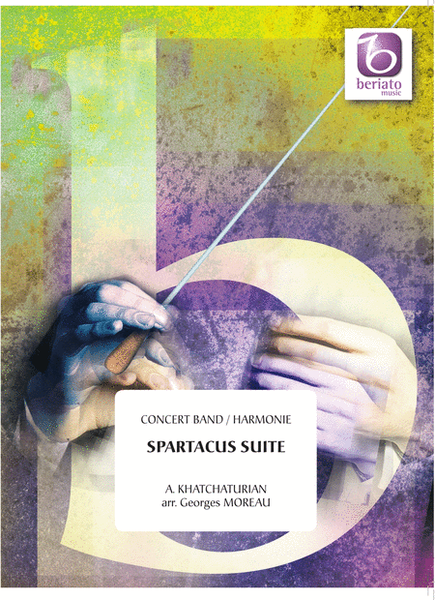
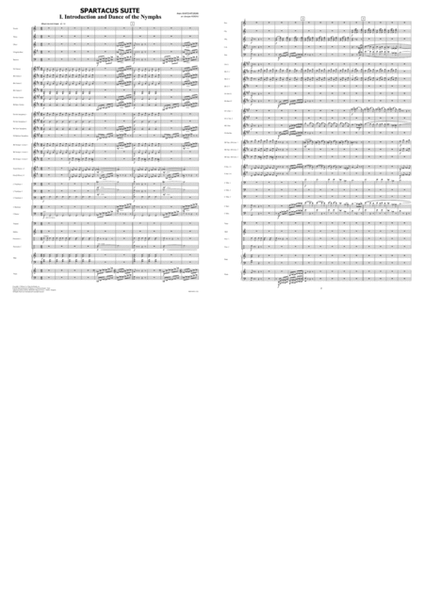
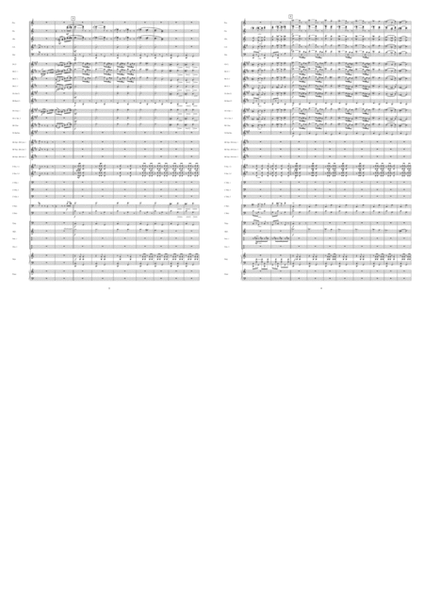
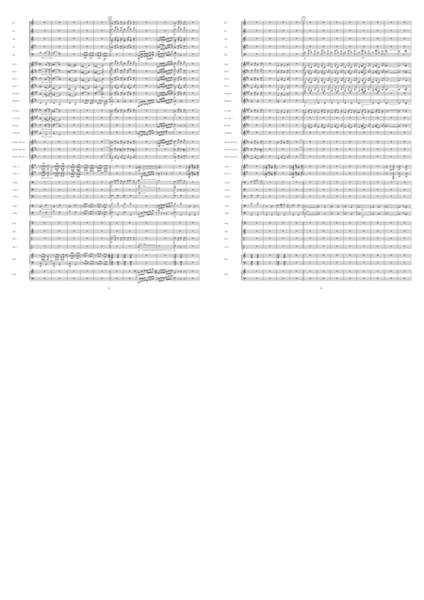
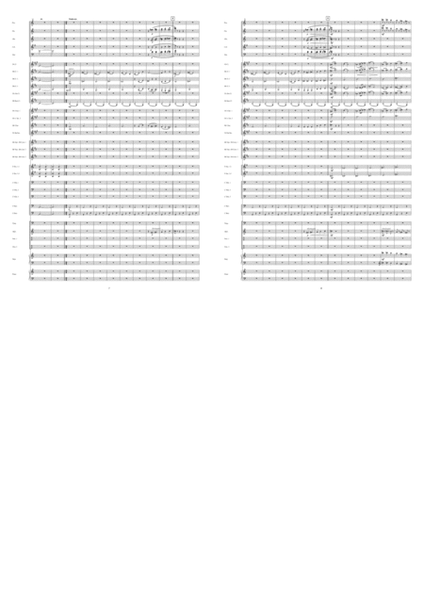
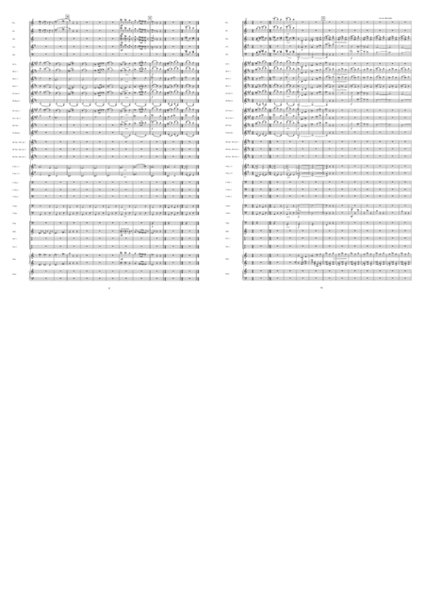
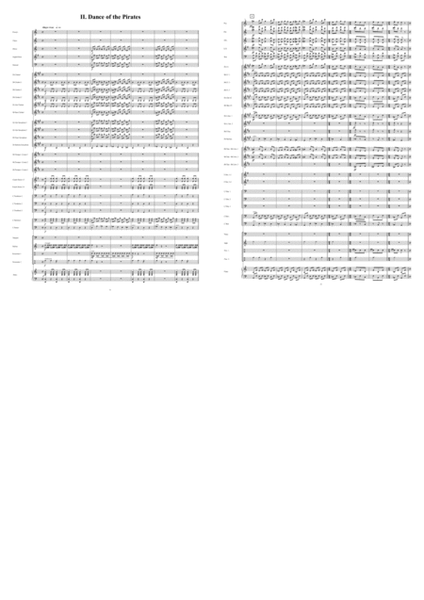
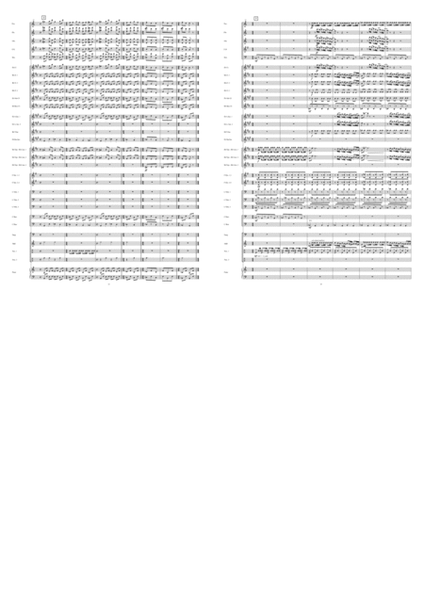
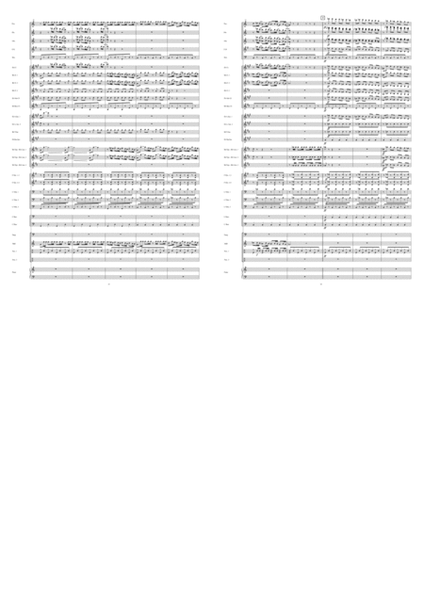
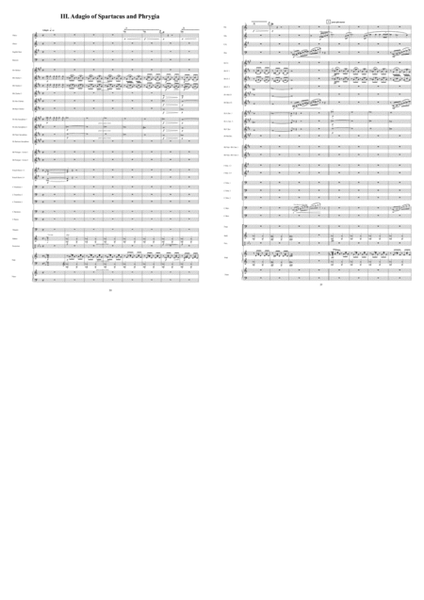
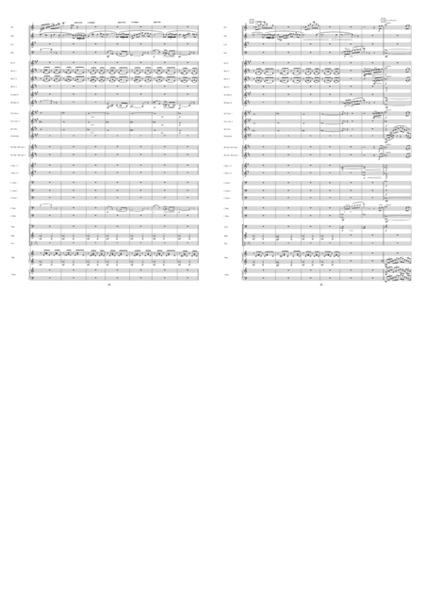
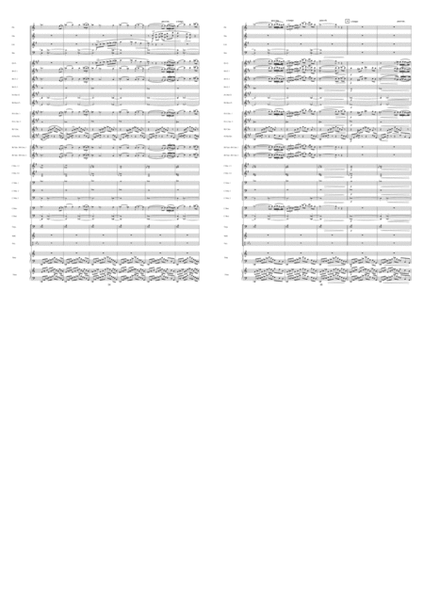
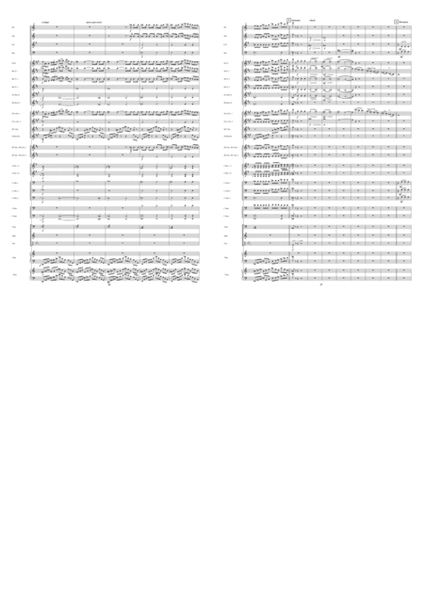
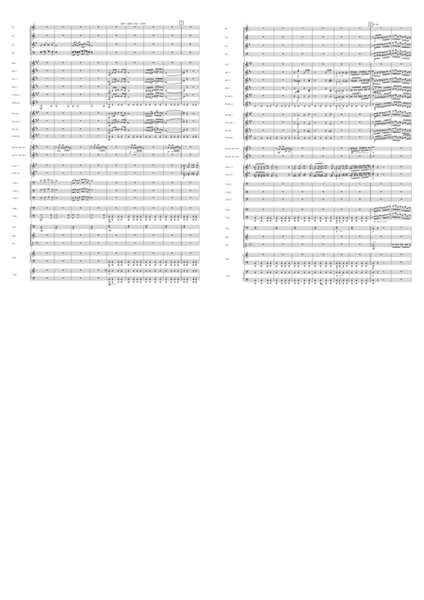
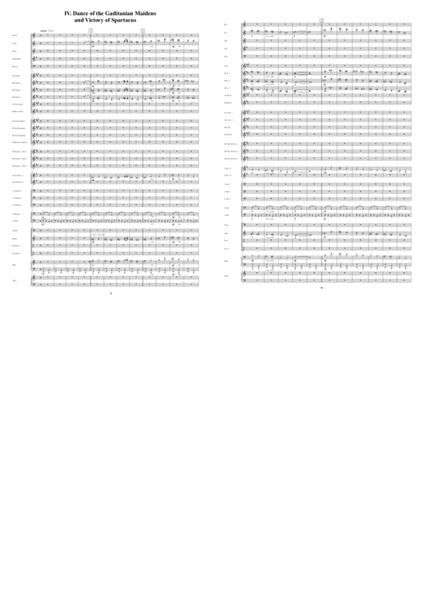
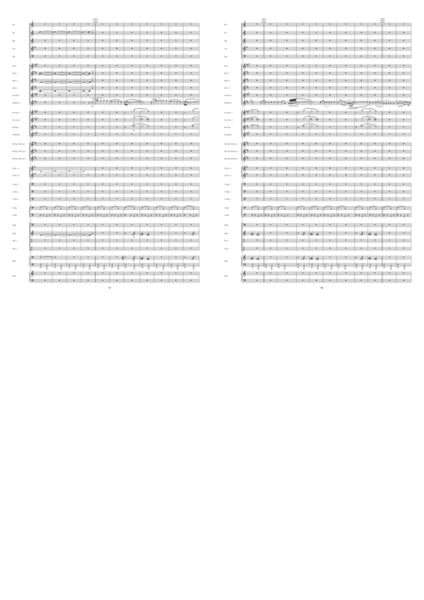
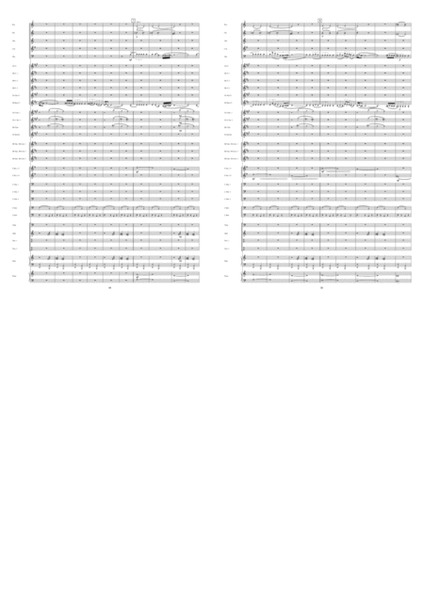
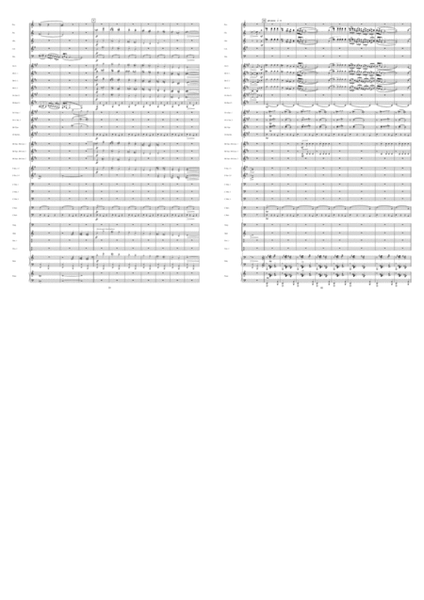
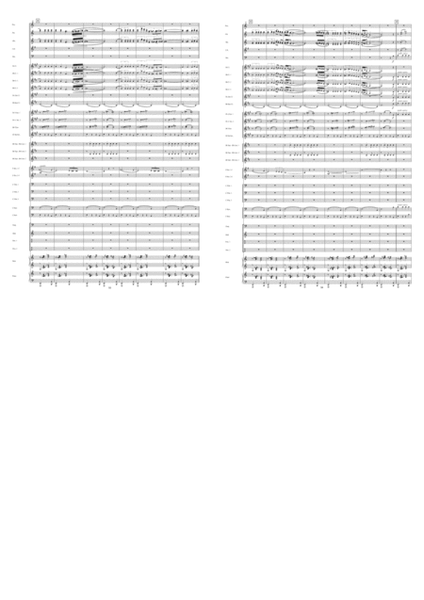
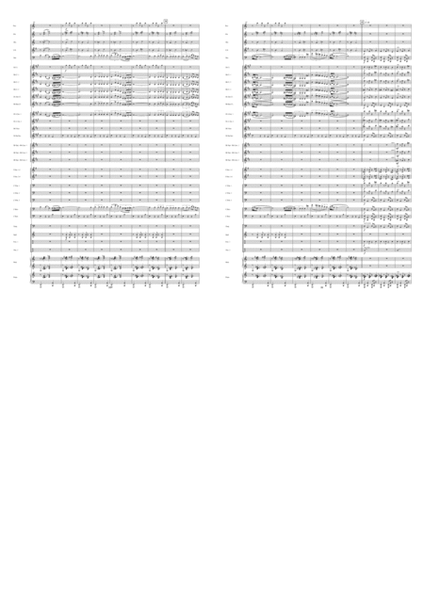
 Share
Share